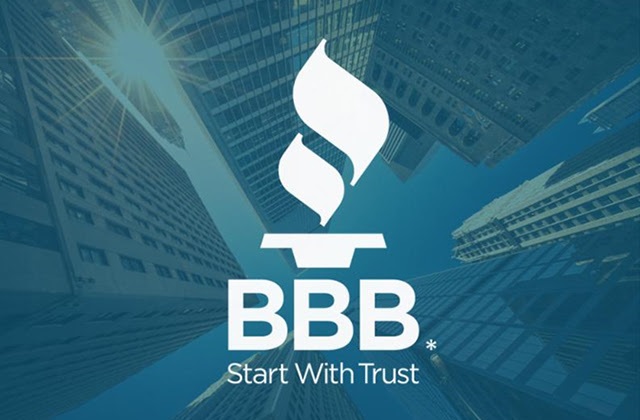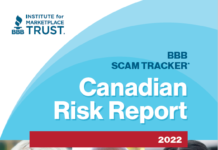A few months into the pandemic last year, vehicle sales fell down significantly, with many consumers across the province also selling or trying to sell their vehicles because of significant life changes like remote working and/or unemployment. Overall, the industry saw almost 20% decrease in new vehicle sales for 2020 when compared to the previous year, says the Better Business Bureau (BBB).
Now as vaccination rates increase, COVID-19 case numbers decrease and the province’s Restart Plan is being gradually implemented, there seems to be a growing interest around vehicles again. Car dealers were among the top consumer inquiries for May at the local Better Business Bureau with over 2,900 requests, coming from less than 1,700 in January. With most of these consumers trying to find vehicles online, BBB is sharing key considerations to help ensure they find what they need while also avoiding scams.
Why Buy a Vehicle Online?
Given the stress often involved in buying a vehicle, many dealers are figuring out ways to simplify the process by moving it online. One main perk of purchasing a vehicle online is that there is less stress and emotion involved. It is easier to stay detached when chatting with someone remotely. This helps you make a clear-headed purchase. Also, any discussion you have about pricing or financing generally comes through email. This means you have everything in writing, and you can thoroughly review the terms without a salesperson nearby. You can make a decision on your own time – even if that means after normal business hours.
How to Buy a Vehicle Online
If you are considering to buy a vehicle online, BBB recommends the following tips to help you avoid being scammed and get the best deal possible:
Set a budget. Before you set out to find the perfect vehicle, it is important to establish a budget. You will also want to factor in monthly expenses that come with owning a vehicle, including insurance payments, fuel, parking, and routine maintenance and repairs. A clearly defined budget will make choosing a vehicle, negotiating with a dealer, and getting a loan (if necessary) much easier.
Do thorough research. Assess your personal needs first. Do you need a large vehicle for a big family? Do you spend a lot of time on the road and want good fuel economy? The answers to these questions will help you narrow down the makes and models as you search for a vehicle that fits your needs. Once you have narrowed your search, compare models you are interested in, all while keeping a close eye on safety ratings, owner reviews, and warranties. Visit manufacturer websites to see detailed images of each vehicle and research MPG statistics, interior options, cargo space, towing capacity, and more. The more time you spend on these initial steps, the more comfortable you will feel when it is time to make a purchase.
Shop for a deal. While you are still doing research, do not forget to look for deals! These may include cash-back deals, rebates, low-interest financing options, or incentives for recent graduates, military veterans, Uber and Lyft drivers, or first responders. In addition, many dealers are willing to make price cuts on previous year models or any model that did not sell as well as expected. Purchasing one of these surplus vehicles can mean extra incentives from the dealer.
Search dealers for inventory. Now that you have a specific make and model in mind and you have determined how financing will be managed, then you are ready to start shopping. You can do a search for the specific vehicle, or you can browse a dealer’s inventory online to see what they have on hand. You can include out-of-town dealers, but they will likely charge higher fees for delivery. It is a good idea to start with a local search and expand it if you cannot find what you are looking for.
Take advantage of online showrooms to get a close look at the vehicle. Many online dealers feature dozens of photos from a variety of angles, so you can give each car a close inspection from the comfort of your own home. Compare the offerings of multiple dealers and check each dealer’s business ratings on BBB.org before you reach out to them.
Test drive the vehicle. You should always take a test drive before you sign the final paperwork. There is no substitute for seeing a car in person, looking under the hood, sitting in the driver’s seat, and making sure the engine runs smoothly. To do so, you may need to travel to the dealer’s place of business. Some dealers offer the ability to test drive upon delivery and if anything is not as expected you may cancel the sale. Take the route that works best for you, but never skip the test drive.
Complete the sale at the dealer or upon delivery. If everything checks out, decide how you will complete the sale. It is still usually necessary to sign the final paperwork in person. If you would rather avoid visiting the dealership, ask about delivery. Some dealers will drop off the car at your home or place of business and allow you to sign upon delivery.
Avoid Online Vehicle Sales Scams
There are plenty of pros to buying a vehicle online, but caution is needed as well. Anytime you shop online, and especially when making an expensive purchase like a vehicle, you should keep the following tips in mind:
* Watch out for ‘too good to be true’ deals. They are most likely a scam. Scammers often steal consumers’ personal information and money by offering them high-value goods at extremely discounted prices.
* Never wire funds or complete bank-to-bank transactions. Scammers love this kind of transaction because there is no way for you to get your money back once it is completed. Instead, make legitimate purchases by cheque or credit-card.
* Contact the seller by phone. At some point during your negotiations, speak with the sales manager on the phone. If they are unusually vague about certain details of the sale or cannot confirm their location or the vehicle location, it is most likely a scam.
* See the vehicle first. Never buy a vehicle without doing an in-person inspection and taking a test drive.
* Don’t give in to pressure. Scammers often try to pressure you into giving up your personal information or making a down payment before you have time to think about the purchase. Take your time and think over the deal before agreeing to anything. If you get a bad feeling, listen to your gut.
* Don’t trust a seller or buyer who says that the transaction is guaranteed by eBay, PayPal, Craigslist, or another online marketplace. These sites explicitly explain they cannot guarantee that people using their services are legitimate. Anyone who says otherwise is lying.













